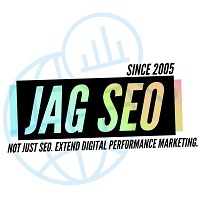Technology
1. Redirection methods and theory - 301, 302, and 200 response codes
2. Basic understanding of DNS and website hosting issues and jargon.
3. Enough javascript and PHP to tweak existing code and to understand how the script is supposed to work.
4. Header and meta information standards - metatags, http-equiv, title, etc5. How server side includes work and how to troubleshoot them. Robots control methods (meta, robots.txt)
Web Design
1. Basic knowledge of HTML , XHTML and CSS
2. Knowledge of W3C compliance testing, and when you can make intelligent exceptions.
3. Knowledge of 501 Usability standards, especially related to alt attributes
4. Common standards and expectations for interface design
Marketing
1. How to make a business plan
2. How to create interesting content that converts
3. How to fit keywords into content naturally and easily
4. How to measure ROI, conversions and other web metrics
5. How to implement, understand and react to website analytics reporting
6. Understand international and language issues in marketing and search
Information Retrieval Science
1. How a search engine spider operates, as well as it's limitations and abilities
2. How information is stored - compression, tokenization, indexing, etc
3. Advanced query building and special searches and commands
4. Read every Google patent, as well as search related patents by Yahoo, MS, IBM, etc
5. Understand concepts such as term vector theory, semantic co-location, etc
6. Understand and know the guidelines and issues search engines have. This is more art than science, since they are intentionally vague.
7. Understand the key elements that search engines look at while analyzing a page and why they look at them.
SEO
1. Know how to analyze a site for key factors - links, anchor text, content, etc.
2. Know how to tweak a site to effectively present itself as a good candidate for ranking on a specific term.
3. Know the basics of link building - neighborhoods, anchor text, etc
4. Know the basics of organizing links and content to be helpful to both people and search engines.
5. Know how to make the content in non-spider-able media like images, sounds, flash, AJAX and so forth available, or to be able to compensate for it.
6. Know how to tweak content and structure (headers, etc) to best present a site to a search engine and a visitor.
7. Be aware of all the major search engines, their demographics and idiosyncrasies. Also be aware of what they have to offer outside of search, and what the connections between the two are.
SEM
1. Know how to set up basic AdWords, Yahoo, and MSN search accounts
2. Know how to create and test ad copy and landing pages
3. Know how to analyze the reports and to optimize the results.
4. Know the basics of advertising purchases, including links, banners and other advertising channels
5. Know how to optimize for local search for the major engines
Thanks for your time and support, Leave a reply!
1. Redirection methods and theory - 301, 302, and 200 response codes
2. Basic understanding of DNS and website hosting issues and jargon.
3. Enough javascript and PHP to tweak existing code and to understand how the script is supposed to work.
4. Header and meta information standards - metatags, http-equiv, title, etc5. How server side includes work and how to troubleshoot them. Robots control methods (meta, robots.txt)
Web Design
1. Basic knowledge of HTML , XHTML and CSS
2. Knowledge of W3C compliance testing, and when you can make intelligent exceptions.
3. Knowledge of 501 Usability standards, especially related to alt attributes
4. Common standards and expectations for interface design
Marketing
1. How to make a business plan
2. How to create interesting content that converts
3. How to fit keywords into content naturally and easily
4. How to measure ROI, conversions and other web metrics
5. How to implement, understand and react to website analytics reporting
6. Understand international and language issues in marketing and search
Information Retrieval Science
1. How a search engine spider operates, as well as it's limitations and abilities
2. How information is stored - compression, tokenization, indexing, etc
3. Advanced query building and special searches and commands
4. Read every Google patent, as well as search related patents by Yahoo, MS, IBM, etc
5. Understand concepts such as term vector theory, semantic co-location, etc
6. Understand and know the guidelines and issues search engines have. This is more art than science, since they are intentionally vague.
7. Understand the key elements that search engines look at while analyzing a page and why they look at them.
SEO
1. Know how to analyze a site for key factors - links, anchor text, content, etc.
2. Know how to tweak a site to effectively present itself as a good candidate for ranking on a specific term.
3. Know the basics of link building - neighborhoods, anchor text, etc
4. Know the basics of organizing links and content to be helpful to both people and search engines.
5. Know how to make the content in non-spider-able media like images, sounds, flash, AJAX and so forth available, or to be able to compensate for it.
6. Know how to tweak content and structure (headers, etc) to best present a site to a search engine and a visitor.
7. Be aware of all the major search engines, their demographics and idiosyncrasies. Also be aware of what they have to offer outside of search, and what the connections between the two are.
SEM
1. Know how to set up basic AdWords, Yahoo, and MSN search accounts
2. Know how to create and test ad copy and landing pages
3. Know how to analyze the reports and to optimize the results.
4. Know the basics of advertising purchases, including links, banners and other advertising channels
5. Know how to optimize for local search for the major engines
Thanks for your time and support, Leave a reply!
